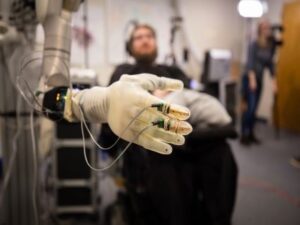Study Reveals Key Role of NSP4 in Rotavirus Severity

Researchers at Baylor College of Medicine and collaborating institutions have uncovered how NSP4, a rotavirus protein, influences disease severity by disrupting calcium signaling. Published in Science Advances, the study is among the first to demonstrate that NSP4 is both necessary and sufficient for triggering calcium imbalances not only in infected cells but also in surrounding uninfected cells. These disruptions contribute to rotavirus virulence, offering potential new strategies for treatment and prevention.
“Rotavirus is responsible for nearly a quarter of all severe pediatric acute gastroenteritis cases, causing diarrhea, vomiting, fever, and abdominal pain. Despite oral rehydration therapy and vaccines reducing its impact, there is still room for improvement,” said Dr. Joseph Hyser, the study’s corresponding author.
How NSP4 Influences Rotavirus Infection
Building on prior research showing that rotavirus triggers ‘intercellular calcium waves’—which worsen disease symptoms—the team investigated NSP4’s role using human, porcine, and genetically engineered rotavirus strains in cell cultures, intestinal organoids, and animal models.
Key findings include:
•NSP4 alone was enough to generate calcium waves, even in the absence of infection.
•Virulent rotavirus strains induced more calcium waves than attenuated strains, which cause milder disease.
•Swapping NSP4 from an attenuated strain into a virulent strain reduced calcium wave activity and disease severity in an animal model.
•Calcium waves also triggered immune responses, suggesting that calcium dysregulation plays a role in viral detection by the body.
Implications for Future Research
The study highlights NSP4 as a major factor in rotavirus severity and suggests that targeting NSP4 could lead to new therapeutic approaches. Additionally, the findings may extend to other viruses with similar proteins that manipulate calcium signaling.








